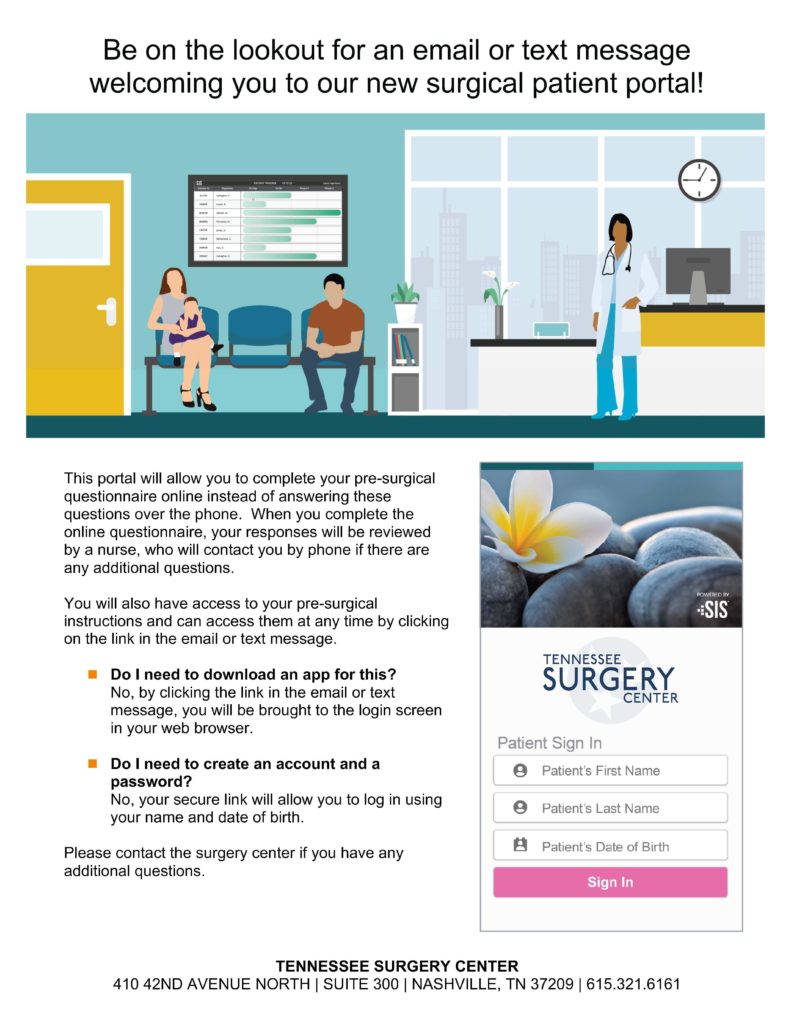Patient registration
Pre-registration Resources
Advanced Directive/Living Will
Advanced Directive
Living Will
ADVANCED DIRECTIVE
Life is valuable and precious. We all deserve to be treated with the best medical care available. But, medical care has its limits. Sometimes there is a point when nothing else can be done to cure a deadly illness or injury.
Confronted with dying, I would prefer to have aggressive medical treatments stopped so that I can be with my family to die with dignity, quietly and without pain.
ANSWERS TO YOUR QUESTIONS ABOUT LIVING WILLS…
When should I sign a Living Will?
Now. The best time to think about your Living Will and talk about it with your doctor and your family is before you have a life-threatening illness or injury. Spend some time thinking about what is important to you. Talk with your doctor, friends and family about your wishes. Ask questions. Then, when you are sure about what you would want, sign your Living Will.
What is a “terminal condition?”
A “terminal condition” is any disease, illness, injury, or condition where there is no reasonable medical expectation of recovery. It will result in death whether life-sustaining treatments or equipment are used or not. Common examples of a terminal condition include severe heart failure or final stages of cancer.
What should I do with my Living Will?
Give copies of your Living Will to your family members, your doctors, and anyone else you feel can help make your wishes known when you can’t. MOST IMPORTANTLY, TALK ABOUT IT. Discuss your Living Will with them so they know exactly what you want. If your doctor does not want to follow your Living Will, he/she is obligated to find you another doctor. Keep a copy of your Living Will with your important papers, but don’t put it in a bank lock box. A card is included to let people know you have a Living Will and to let them know where they can find it.
How can I cancel or change my Living Will?
You may cancel or change your Living Will at any time—orally or in writing.
Are there any other documents I should consider?
You can also have a Durable Power of Attorney for Health Care. It gives a specific person the responsibility to make decisions for you when you are too sick to speak; including making sure your Living Will is followed by your family and your doctor. You need to make sure that person agrees with your desires and is strong enough to carry them out. If you want to have a Durable Power of Attorney for Health Care, call the Tennessee Commission on Aging at (615) 741-2056 for more directions and a free copy of the Tennessee form.
I still have a lot of questions. Where can I go for help?
If you have a question or would just like to talk to someone about Living Wills, call the Choice in Dying free hotline at 1-800-989-WILL (9455) or look up the Choice in Dying website. You can also call Alive Hospice at (615) 327-1085 or Tennessee Donor Services at (615) 327-2247.
THE LIVING WILL
When your condition is terminal and there is no use in trying any other treatments, you can decide to stop further medical care and accept only care that will make you more comfortable. This means there will be no more tubes or unwanted treatment. A Living Will goes into effect only when you are too sick or injured to speak for yourself and when doctors believe you will die without the use of machines or aggressive treatment. If there is a reasonable chance that you can be restored to health, your Living Will will not apply.
A Living Will is on the opposite page. It is binding under Tennessee law. Yet you can cancel it or change it at any time.
Additionally, there are two options in the Living Will to consider:
- Do you want food and water to be given through tubes? If not, you can say so. You will still be offered food and water by mouth if you are physically able to take them.
- Do you want to donate your organs/tissues for transplantation after you die? You can say so on the opposite page.
It’s Your Decision
A Living Will gives you control of decisions about your medical care when you have a terminal condition and are unconscious or too sick to communicate. It lets people caring for you know exactly what you want, so that you, and not others, choose how you are treated. It is the best way to make sure your wishes will be respected and maintained by doctors, by other health care providers and by friends and family members.
It’s A Gift
A Living Will is a gift to your family and friends, who otherwise would be left to guess what you want. Families may not have the emotional strength to make those decisions for you. Family members may also disagree among themselves or with your doctors. And when disagreement occurs, the lack of direction often leads to continuation of treatment you may not want. Don’t let this happen to them — or to you!
Important Notice to Medical Personnel:
I Have a Living Will My primary care physician is:
________________________________ _________________________________
Signature Name
_________________________________
Address
Please consult this document and/or my family in case of an emergency
________________________________ __________________________________
Name of person to contact Phone
________________________________ __________________________________
Address My Living Will is located at:
________________________________ __________________________________
Phone I am an organ/tissue donor
MY LIVING WILL
I want my family and doctors to know that, if I have a terminal condition and there is no real chance I will recover, no matter what is done, I want aggressive medical treatment stopped. I want to die naturally. Give me only those medicines and treatments that will make me comfortable and pain free. I want cleanliness, privacy and peace in my final hours. Furthermore,
I want to be offered real food and water that I can eat and drink if I am hungry or thirsty. If I am unable to eat or drink, I do___/I do not___ want a tube placed in my veins, nose, or throat or surgically placed in my stomach to give me artificial food and fluids.
I do___/I do not___ want to be an organ/tissue donor after I die. If I am an organ donor, artificial support may be maintained long enough for organs to be removed.
This Living Will is my own free decision. I accept full responsibility for the consequences of refusing medical care under these circumstances. I know I can change my mind at any time, but, If I don’t, my doctors and family must honor it.
Date:__________________ Signed_________________________________________
Printed name:__________________________________________________________
Witnesses’ Statement:
We believe the adult who signed this Living Will is mentally competent, understands what it means and signed it freely. We are not family, and we won’t benefit financially from his/her death. We are not this person’s doctor or employees of the doctor, hospital, or other health care facility.
Date:________________ Witness:_________________________________________
Witness:______________________________________________________________
Anesthesia Instructions
Patient Rights & Responsibilities
Patient’s Bill of Rights
TENNESSEE SURGERY CENTER believes that patients’ rights are of primary importance for proper and complete health care delivery. Each patient receiving service at our facility shall have the following rights:
⇒ To be informed of these rights and given an explanation for these rights in terms he/she can understand.
⇒ To be informed of services available in the facility, of names, of professional status/credentials/insurance of the personnel providing and/or responsible for his/her care, and of fees and related charges, including payment, fee, deposit and refund policy of the facility and any charges for service not covered by sources of third party payment or not covered by the facility’s basic rate.
⇒ He/she also shall have a right to change physicians, refuse or allow their participation in his/her treatment.
⇒ To receive from his/her physician(s) or clinical practitioner(s), in understandable terms, an explanation of his/her complete medical/health condition or diagnosis, evaluation, recommended treatment, options (including the option of no treatment), risk(s) of treatment and expected result(s). If this information would be detrimental to his/her health, or if he/she is not capable of understanding the information, the explanation shall be provided to his/her next kin or guardian. This release of information to the next of kin or guardian, along with the reason for not information the patient directly, shall be documented in his/her medical record.
⇒ To participate in the planning of his/her treatment and to refuse medication and treatment. Such refusal shall be documented in his/her medical record.
⇒ He/she may refuse or choose to participate in experimental research, including the investigation of new drugs and medical devices.
⇒ To voice and receive a verbal/written response to grievances or recommended changes in policies and services to facility personnel, the governing authority and/or outside representatives of his/her choice, either individually or as a group, and free form restraint, interference, coercion, discrimination or reprisal.
⇒ To be free from mental and physical abuse, free from exploitation and free from use of restraints, unless they are authorized by physician for a limited period of time to protect the patient or others from injury. Drugs and other medications shall not be used for discipline of patients or for the convenience of facility personnel.
⇒ To confidential treatment of information about any patient. Information in the patient’s medical record shall not be released to anyone outside the facility without his/her approval, unless another healthcare facility to which he/she was transferred requires the information; or unless the information is required and permitted by law, a third party contract or a peer review; or unless the information is needed by the Tennessee State Department of Health for statutorily authorized purposes.
⇒ Treated with courtesy, consideration, respect and recognition of his/her dignity and individuality and the right to privacy, including but not limited to, auditory and visual privacy and medical record information.
⇒ To not be discriminated against because of age, race religion, sex, nationality, or deprived of any constitutional, civil and/or legal rights.
⇒ To request information regarding services available at the Center, provisions for after-hours and emergency care and advanced directives living will.
⇒ To receive information about fees for services and payment policies.
Patient’s Responsibilities
Each patient receiving service at our Surgical Center shall have the following responsibilities:
⇒ To give us complete and detailed information regarding his/her past and present medical surgical conditions.
⇒ To inform us of any and all drugs/herbal supplements taken, either prescription or non-prescription.
⇒ To assume complete responsibility for payment of services provided.
⇒ Patients are responsible for medical and related consequences resulting from the refusal of treatment or from not following instructions of physicians and/or Center’s personnel.
⇒ To be considerate of the assets and employees of the Center.
CONTACT INFORMATION:
Division of Health Facilities Evaluation and Licensing
Tennessee State Department of Health
Cordell Hull Building
425 5th Avenue North
Nashville, TN
1-800-792-9770
ACCEPTANCE & RECEIPT OF THE PATIENT’S BILL OF RIGHTS:
**(to be completed at facility on day of surgery, below info given for reference only)**
The ORAL FACIAL SURGERY CENTER d/b/a SPECIALTY SURGERY CENTER has issued, you the patient, a copy of your Patient Bill of Rights and your Patient Responsibilities.
This signature form will be retained in your Patient File for one year.
Signature of receipt of this document means that you physically received a copy of your Patient Bill of Rights and your Patient Responsibilities and does not imply anything other.
Patient Signature: __________________________________ Date:_______________
Patient Guardian or Representative: ______________________Date: _______________
Relationship to the Patient: _______________________________________________
Witness: _________________________________________Date: _______________

